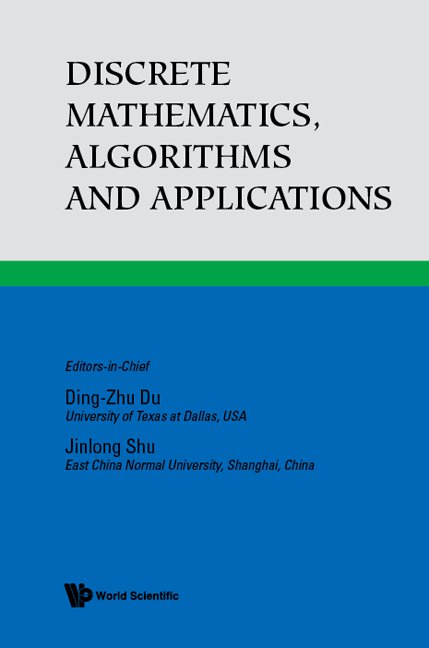Keynote Speakers
Funda Ergun (Professor, Department of Computer Science, Indiana University, USA)
Title: An Algorithmic Approach to Understanding Tumor Evolution from Single Cell Sequencing Data? Abstract: Cancer is an ever-evolving disease, demonstrated by the high variety of mutations exhibited by different cells within a tumor. Advances in sequencing technologies have improved our understanding of this heterogeneity within tumors; yet, our ability for tracing the structure of the evolution of mutations in cells is limited by the sheer size and the inaccuracy of our data. The goal in our research is to employ mathematical techniques in order to overcome these challenges.
In particular, in this talk, we will discuss techniques towards discovering the tumor evolution tree underlying large amounts of noisy mutation information in a tumor. Our initial efforts are hampered by our inability to accurately access the ground truth, as all observations are subject to probabilistic noise. To compensate, we treat the ground truth as a probability distribution over tumor evolution trees, restricted by certain properties representing the possible real-life structure of the data. Unfortunately, the subspace of such trees is so small that we cannot expect to observe them by sampling the cell/mutation space directly. We instead show how to devise smart strategies for generating intermediate distributions for efficiently sampling and analyzing this subspace. We ultimately come up with provable inferences about the underlying tree structure of tumor evolution, which can be used to make conclusions about disease traits.Bio: Dr. Funda Ergun is a professor or Computer Science at Indiana University. Her interests like in randomized algorithms, sublinear algorithms, and big data algorithmics with applications to fields such as bioinformatics, computer networks/data centers, and cloud computing. She has received her PhD from Cornell University, and has previously been employed by Bell Laboratories, Case Western Reserve University, and Simon Fraser University. She has been the General Chair for ICNP 2011 and Distributed Algorithms and Theory Track Chair for ICDCS 2022; she is currently an Editorial Board member for IEEE Transactions on Cloud Computing.
Yong Tan (Michael G. Foster Endowed Professor of Information Systems, Chair of Department of Information Systems and Operations Management, University of Washington, USA)
Title: When Emotion AI Meets Strategic Users Abstract: When organizations adopt artificial intelligence (AI) to recognize individuals' negative emotions and accordingly match limited resources to them, strategic users are incentivized to game the system by escalating emotional intensities. The economic value of AI may be undermined by gaming behavior, algorithmic noise in emotion detection, and the spillover effect of negative emotions. We develop a game-theoretical model to identify the conditions under which adopting emotion AI is valuable to the organization and design the associated optimal allocation policies. We find that adopting emotion AI is always valuable if the spillover effect of negative emotions is negligible compared to resource misallocation loss, regardless of algorithmic noise and gaming behavior. We also quantify the welfare impacts of emotion AI on individuals, the organization, and society. Notably, we show that a stronger AI is not always socially desirable and regulation on data-driven allocation is needed. Finally, we characterize a broad set of conditions under which adopting emotion AI is more profitable for the organization than hiring employees to recognize emotions and allocate resources. Our work provides implications for designing, adopting, and regulating emotion AI.
Bio: Dr. Yong Tan is the Michael G. Foster Endowed Professor of Information Systems and Chair of Department of Information Systems and Operations Management at the Michael G. Foster School of Business, University of Washington, the Chang Jiang Scholar Visiting Chair Professor at the School of Economics and Management, Tsinghua University, a Distinguished Fellow of the INFORMS Information Systems Society, and a member of Washington State Academy of Sciences. He received his Ph.D. in Physics and Ph.D. in Business Administration, both from the University of Washington. His research interests include electronic, mobile and social commerce, big data, AI, economics of information systems, social and economic networks, sharing economy, fintech, and health IT. He has published 90+ papers in Management Science, Information Systems Research, Operations Research, Management Information Systems Quarterly, Journal of Management Information Systems, Production and Operations Management, INFORMS Journal on Computing, IEEE/ACM Transactions on Networking, IEEE Transactions on Software Engineering, IEEE Transactions on Knowledge and Data Engineering, among others. He served as a senior editor of Information Systems Research and an associate editor of Management Science. He was a co-chair of Conference on Information Systems and Technology (CIST 2010), the cluster chair of 2012 INFORMS Information Systems Cluster, a track co-chair of International Conference on Information Systems (ICIS 2013, 2021), a co-chair of Workshop on Information Technologies and Systems (WITS 2014), and a co-chair of INFORMS Workshop on Data Science (2019). He received 2017 Management Science Best Paper Award in Information Systems, Association for Information Systems (AIS) Best Publication of 2012 Award, 2012 Information Systems Research Best Paper Runner-Up Award, and Management Science Meritorious Service Award. He has placed his doctoral students in top information systems programs such as Carnegie Mellon University, University of Texas at Austin, and University of Texas at Dallas.







